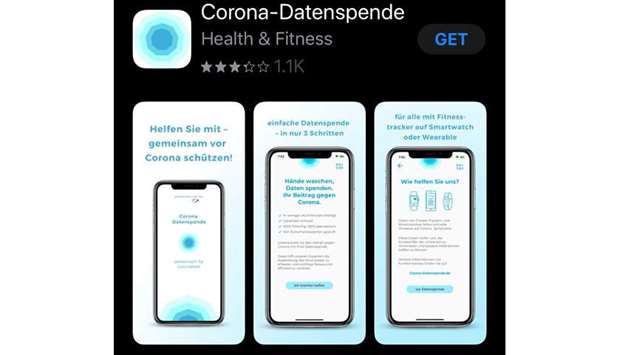German politicians continued to debate yesterday whether stringent measures taken to contain the spread of the novel coronavirus should start being loosened after Easter, as cases in the country surpassed 100,000.
Chancellor Angela Merkel said last week that it would be “irresponsible” to give a date for when restrictions on public life and social-distancing measures should end.
The current measures are due to remain in place until April 19.
Health Minister Jens Spahn rejected the idea of a complete return to normality after the Easter holiday this weekend.
“Things will not all immediately be like before,” he said in the city of Stuttgart, referring instead to “a gradual return to everyday life”.
“The situation remains serious,” he added.
German government and state representatives will discuss how to proceed on April 15, according to Saxony-Anhalt state premier Reiner Haseloff.
Bavarian premier Markus Soeder, whose state is one of the worst-affected by the coronavirus in Germany, said he expects restrictions to be eased gradually.
He thinks an obligation for people to wear face masks is “highly likely” to be put in place.
The German Ethics Council welcomed the debate about the coronavirus restrictions.
“It is too early to now undertake openings. But it is never too early to think about criteria for openings,” the head of the advisory body, the theologian Peter Dabrock, said.
The leaders of the liberal Free Democratic Party (FDP) and far-right Alternative for Germany (AfD) called on the government to develop a concept or timetable for the loosening of the restrictions.
By afternoon yesterday, at least 101,700 coronavirus infections had been recorded in Germany, giving it one of the world’s highest confirmed national caseloads.
At least 1,747 deaths have also been reported, according to a DPA tally based on state data – this makes for a fatality rate that is relatively low compared to other countries, with widespread testing thought to be partly responsible for the trend.
Germany’s government agency for disease control and prevention released yesterday a new smartwatch app that it hopes will provide more insight into the spread of the coronavirus.
The use of the app, called “Corona-Datenspende” (corona data donation), will be voluntary, the Robert Koch Institute (RKI) stressed.
It will have access to data on fitness tracking devices such as Fitbits and smartwatches, which can record things like their users’ resting pulse rate, sleep and level of activity.
“In case of an acute respiratory disease, these vital signs in most cases change significantly. Typical Covid-19 symptoms such as fever could thus also be recognized by the app,” the institute said, referring to the potentially deadly disease caused by the new coronavirus.
The app is not meant to track people who come into contact with Covid-19 patients, but rather to help better understand the key aspects of the infection, according to the RKI.
Personal data such as the name or address of the app user would not be accessible.
The agency hopes that 10% of Germany’s 10mn owners of such watches will use the app.

A screenshot shows the app launched by Germany’s public health authority in partnership with healthtech startup Thryve to help monitor the spread the coronavirus.
